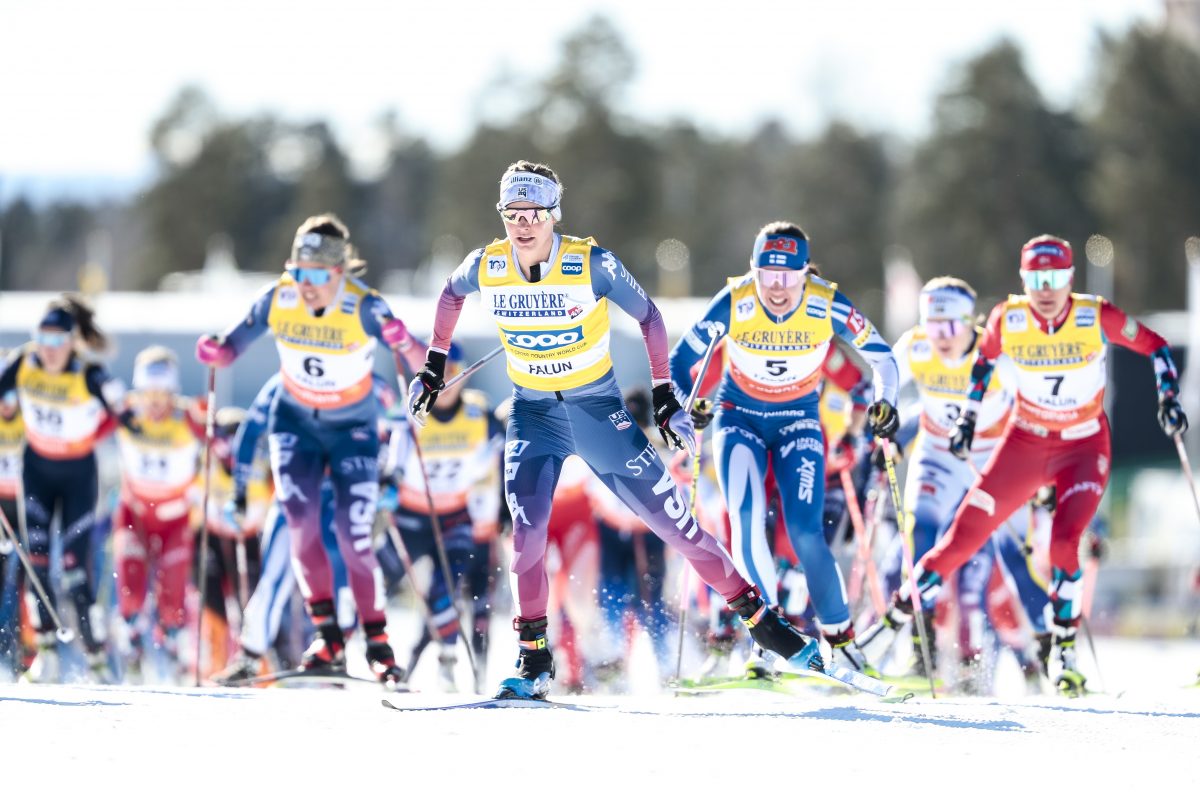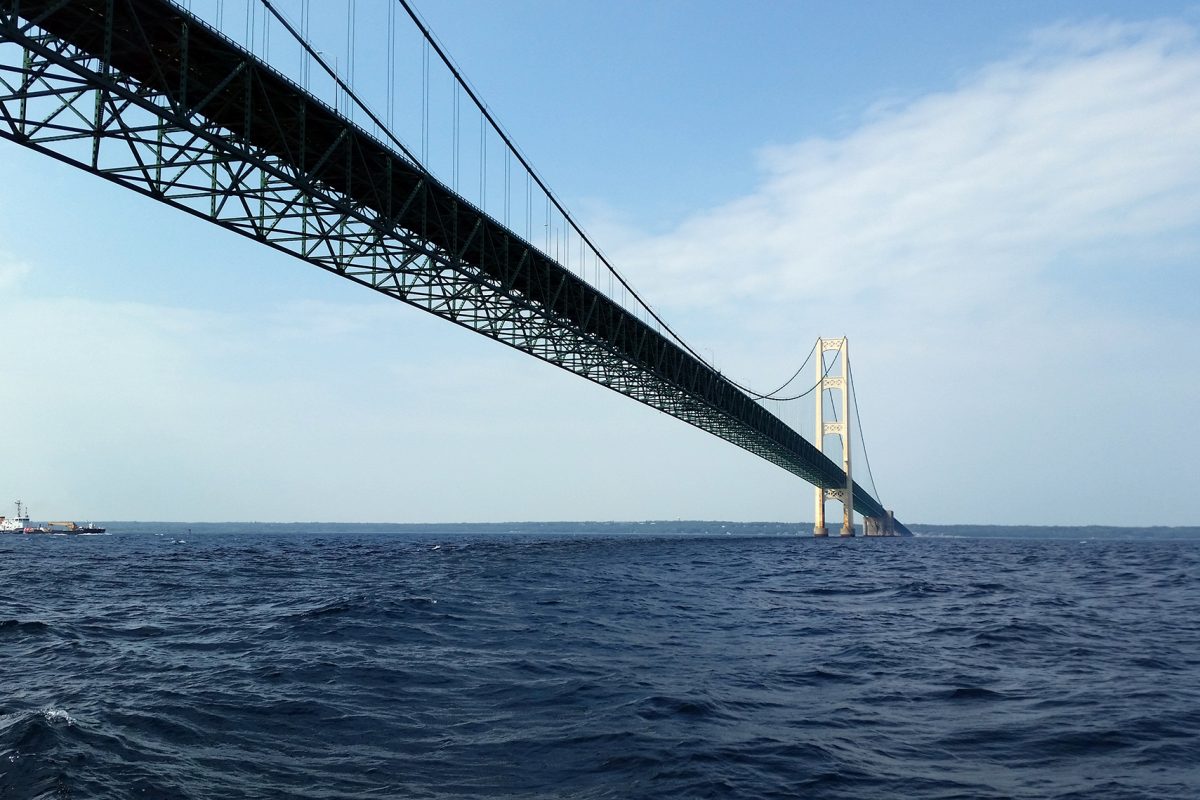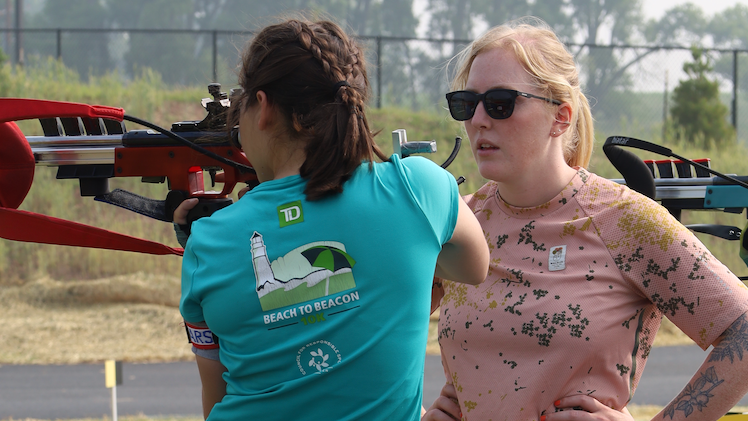
Today’s World Championships relay in Khanty-Mansiysk, Russia, was somewhat unusual, with a large number of spare rounds, quite a few penalty loops, and a small spread between teams at the finish .
What wasn’t unusual? Norway finished on top, defending their Olympic gold from last year.
Things got off to an inauspicious start, with at least three crashes and one broken pole in the first kilometer of racing. Lowell Bailey of the U.S. was among the casualties, breaking a pole on his second loop.
But even amdist this chaos, Norway established their place at the front of the pack. After cleaning both shooting stages with no spare rounds, biathlon legend Ole Einar Bjorndalen handed off with a fifteen-second lead, en route to the twentieth Olympic or World Championship gold medal of his career.
“It was easy,” Bjorndalen told NRK News. “I did what I had planned to do, and then the maximum on the last lap.”
Norway’s second skier, Alexander Os, had never won gold before. And it showed, when he missed three shots in the standing shooting stage. Even after he had used all of his spare rounds, he left one target standing and headed to the penalty loop.
He soon proved, however, that while he may be the least-decorated member of the Norwegian team, he’s no slouch on the trails. Despite losing the lead while he was stuck in the penalty loop, he attacked on the last lap and managed to be the first skier to the handoff, followed closely by Andreas Birnbacher of Germany and Evgeny Ustyugov of Russia, who had faced fewer tribulations on the range.
(Os holds an active FIS license; in 2008 he finished 6th in the 15 k skate at Norwegian nationals, ahead of the likes of Lars Berger, John Kristian Dahl, Tor Arne Hetland, and Petter Eliassen.)
Perhaps the biggest surprise at the handoff was that the unheralded Latvian team was in fourth place, just nine seconds back after two legs. The second and third racers weren’t even wearing matching suits.
In the third leg, Maxim Maksimov of Russia was one of the best shooters, using only a single spare round over two stages. He shot quickly, too, and was often the first skier out of the range. But he couldn’t keep up on the trails, and was periodically passed by Emil Hegle Svendsen of Norway and Arnd Pfeiffer of Germany. Despite shooting better than his competitors, Maksimov had lost almost thirty seconds by the next handoff.
At this point in the race, the time spread was pretty normal for a World Cup relay. And it was no surprise that the Norwegian and German teams were in the lead; those countries are the titans of biathlon. Nor was it surprising that Russia was rounding out the podium. Somewhere in the stands, someone might have yawned.
Tarjei Boe of Norway started off strong, leaving little room for any changes. After the prone shooting stage, he had a thirty-second lead
But there was a brief hiccup in the Norwegians’ plans for domination. In the standing stage, Boe left one target standing after emptying his normal magazine. No sweat, the crowd thought: that’s what the three spares are for. He missed the next shot, using his first spare. Then he missed again. His last spare went wild, missing by a mile, and Boe headed off to the penalty loop.
What?
“I’m pretty bad at shooting when I know I’ve won,” Boe explained to NRK News. “I went out there on the trail and figured out that I would survive a penalty loop, but it was still a little embarrassing.”
His errors – surprising, coming from the World Cup overall leader – meant that the race could come back together again. The Norwegian still skied to the win, but it was by a much smaller margin than seemed likely. Despite stopping to pick up a flag in the stadium, he finished with a thirteen-second lead.
Given the uncharacteristically large shooting errors by both Os and Boe, Norway felt nothing but relief after crossing the finish line first.
“It was a really interesting relay,” Bjorndalen said in the understatement of the day. “We have a very good team, but anything can happen. We started really good just like in Vancouver. We now have a good man in Alex that replaced Halvard Hanevold. We won today, but it was a difficult effort.”
Not as difficult as for some other teams: leaving the last shooting stage, Ivan Tcherezov of Russia and Sergui Sednev of Ukraine were in a dead heat. They both appeared to be hammering their way around the loop, trying to gain an advantage for the silver medal.
But Sednev was clearly afraid of Tcherezov’s speed, at one point turning around to look into his competitor’s eyes. And then, just as expected, Tcherezov went, leaving the Ukrainian in the dust. By the finish he had put fifteen seconds between himself and his foe, and the silver medal went to the host country.
An exhausted Sednev said in a press conference that he had done everything possible to beat the Russian.
“I just tried to shoot and ski my best today,” he explained. “But on the last loop, I was hoping I could catch Ivan, but he was much stronger and I fell back. Still I am very happy to have this medal.”
Meanwhile, Tcherezov said that the crowd had buoyed him to second place.
“The… fans helped us a great deal to achieve this medal. But they also made it very hard, because it was a great, great responsibility and I did not want to fail in front of these people.”



